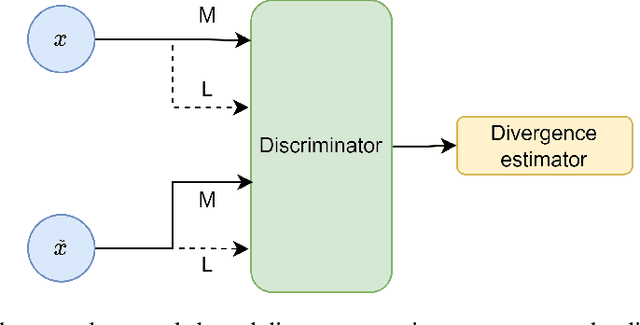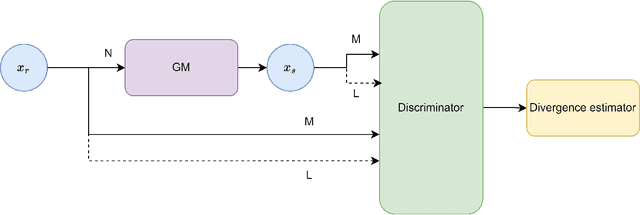Borja Arroyo Galende
Artificial Inductive Bias for Synthetic Tabular Data Generation in Data-Scarce Scenarios
Jul 03, 2024Abstract:While synthetic tabular data generation using Deep Generative Models (DGMs) offers a compelling solution to data scarcity and privacy concerns, their effectiveness relies on substantial training data, often unavailable in real-world applications. This paper addresses this challenge by proposing a novel methodology for generating realistic and reliable synthetic tabular data with DGMs in limited real-data environments. Our approach proposes several ways to generate an artificial inductive bias in a DGM through transfer learning and meta-learning techniques. We explore and compare four different methods within this framework, demonstrating that transfer learning strategies like pre-training and model averaging outperform meta-learning approaches, like Model-Agnostic Meta-Learning, and Domain Randomized Search. We validate our approach using two state-of-the-art DGMs, namely, a Variational Autoencoder and a Generative Adversarial Network, to show that our artificial inductive bias fuels superior synthetic data quality, as measured by Jensen-Shannon divergence, achieving relative gains of up to 50\% when using our proposed approach. This methodology has broad applicability in various DGMs and machine learning tasks, particularly in areas like healthcare and finance, where data scarcity is often a critical issue.
Synthetic Tabular Data Validation: A Divergence-Based Approach
May 13, 2024



Abstract:The ever-increasing use of generative models in various fields where tabular data is used highlights the need for robust and standardized validation metrics to assess the similarity between real and synthetic data. Current methods lack a unified framework and rely on diverse and often inconclusive statistical measures. Divergences, which quantify discrepancies between data distributions, offer a promising avenue for validation. However, traditional approaches calculate divergences independently for each feature due to the complexity of joint distribution modeling. This paper addresses this challenge by proposing a novel approach that uses divergence estimation to overcome the limitations of marginal comparisons. Our core contribution lies in applying a divergence estimator to build a validation metric considering the joint distribution of real and synthetic data. We leverage a probabilistic classifier to approximate the density ratio between datasets, allowing the capture of complex relationships. We specifically calculate two divergences: the well-known Kullback-Leibler (KL) divergence and the Jensen-Shannon (JS) divergence. KL divergence offers an established use in the field, while JS divergence is symmetric and bounded, providing a reliable metric. The efficacy of this approach is demonstrated through a series of experiments with varying distribution complexities. The initial phase involves comparing estimated divergences with analytical solutions for simple distributions, setting a benchmark for accuracy. Finally, we validate our method on a real-world dataset and its corresponding synthetic counterpart, showcasing its effectiveness in practical applications. This research offers a significant contribution with applicability beyond tabular data and the potential to improve synthetic data validation in various fields.
 Add to Chrome
Add to Chrome Add to Firefox
Add to Firefox Add to Edge
Add to Edge